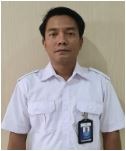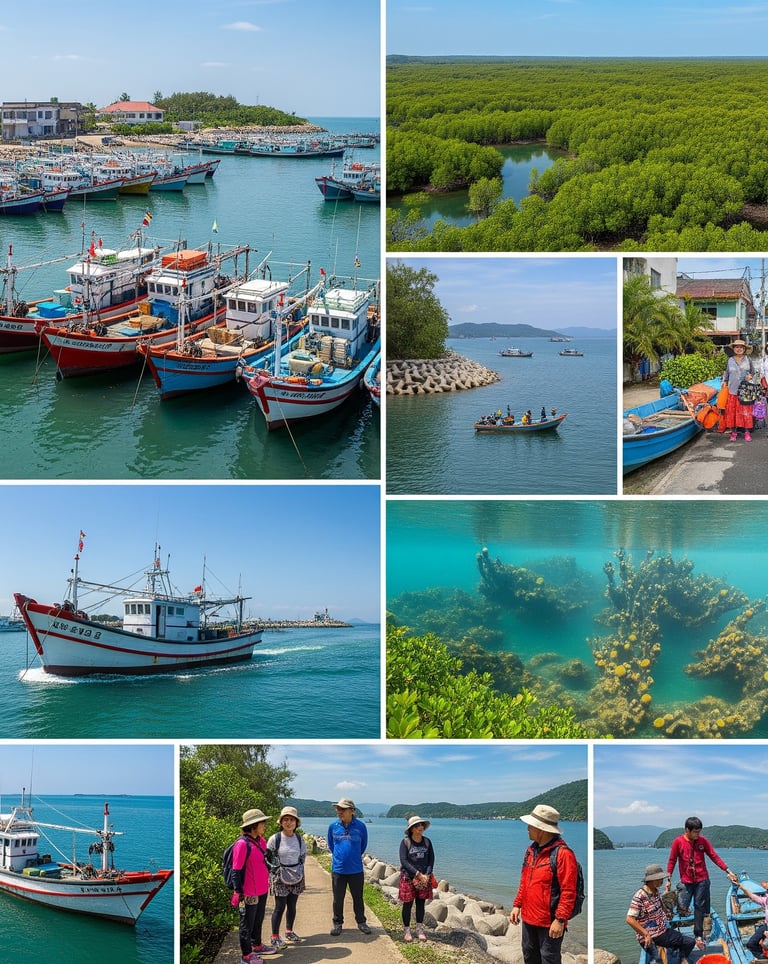

What we do?
We are dedicated to raising collective awareness among all stakeholders about the importance of protecting mangrove forests, seagrass meadows, and coastal wetlands for climate change mitigation and the well-being of coastal and small-island communities, particularly through:
Raising Awareness: Providing in-depth understanding of the critical role blue carbon ecosystems play in global climate regulation, local economies, and coastal community well-being.
Driving Tangible Action: Inspiring and facilitating participation in community-based restoration, conservation, and research programs.
Building Networks: Creating platforms for stakeholders to share knowledge, resources, and best practices.
Policy Advocacy: Supporting the development of environmentally sound and sustainable policies for coastal ecosystem protection.


HOW
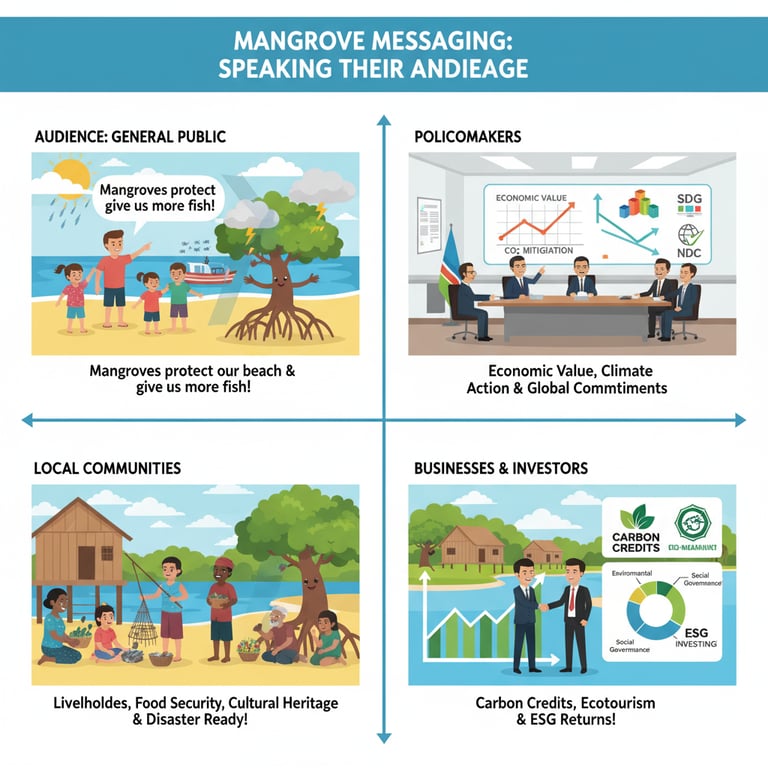

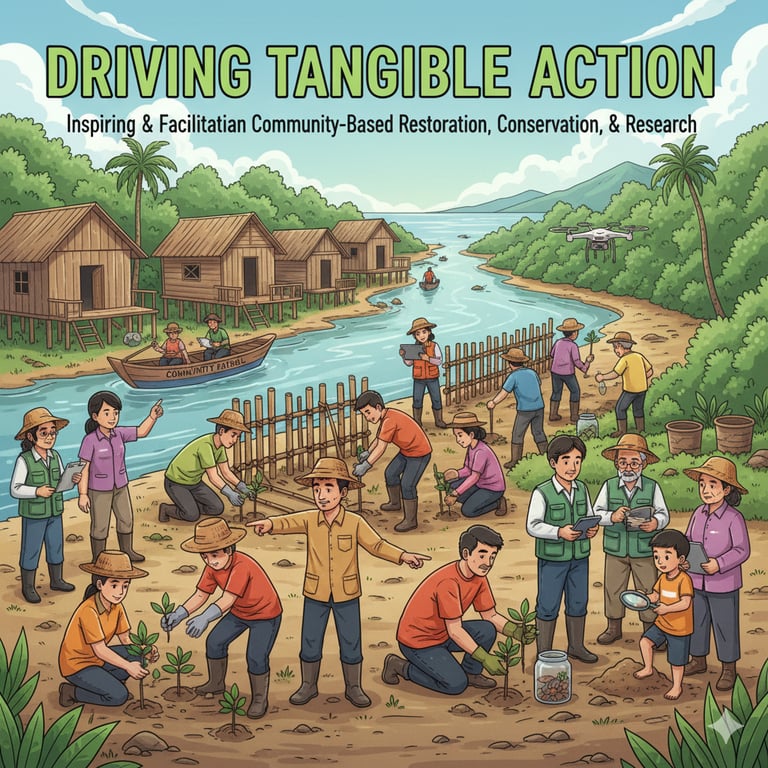

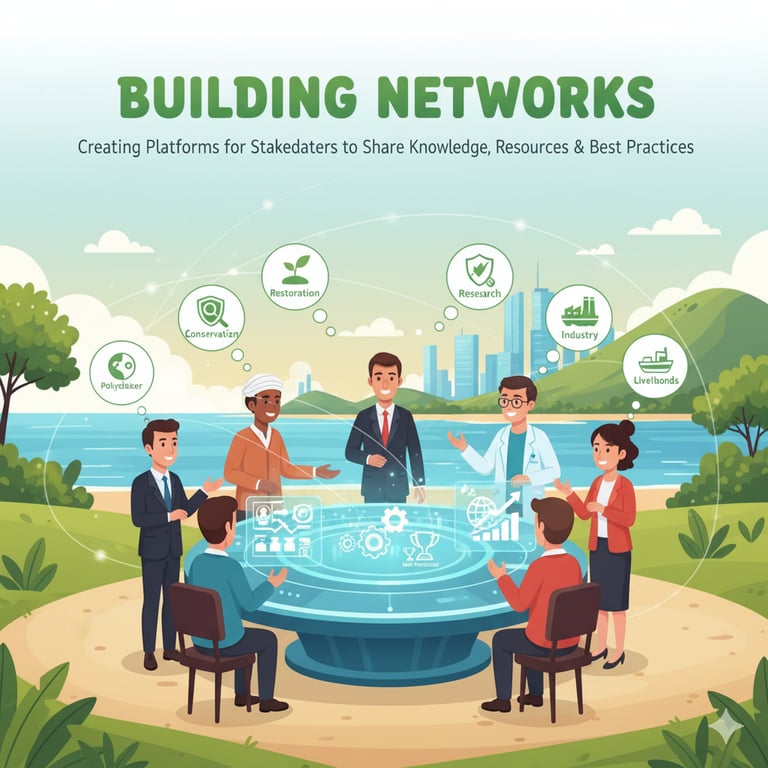

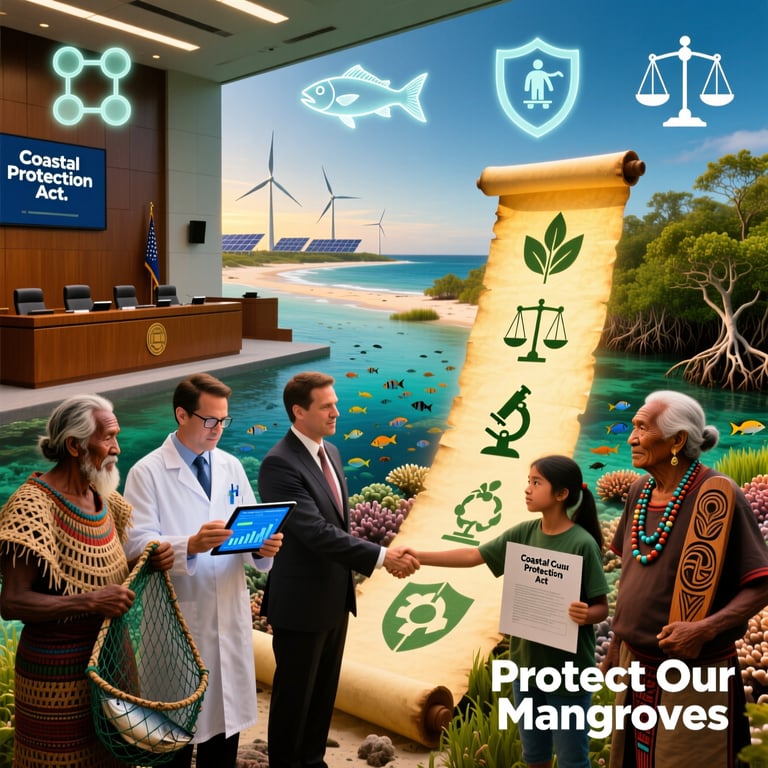

Our goal is to provide a deep understanding of the critical role blue carbon ecosystems play on three key fronts:
Global Climate: Acting as highly efficient carbon sinks that are essential in the fight against climate change.
Local Economies: Supporting sustainable livelihoods through healthy fisheries, aquaculture, and ecotourism.
Community Well-being: Providing food security and natural defense against storms, erosion, and sea-level rise, directly protecting coastal populations.
This initiative is all about turning environmental goals into real-world results by empowering local communities :
Inspiring Participation: The goal is to raise awareness and create excitement around environmental issues. This is done through storytelling, educational outreach, and showing the direct benefits of conservation to the community.
Facilitating Action: The program provides the necessary tools, training, and organizational support so that anyone can contribute effectively. This removes barriers and makes it simple for volunteers to join projects like mangrove planting, coral reef monitoring, or local wildlife surveys.
Driving Tangible Results: By focusing on community-based efforts, the initiative ensures that conservation work is sustainable, locally relevant, and creates a lasting sense of ownership and responsibility for the environment
This initiative is about creating dedicated spaces—such as forums, workshops, or online platforms—where different stakeholders can connect, communicate, and work together:
Knowledge Sharing: This allows members to exchange information, data, and expert insights.
Resource Sharing: Participants can pool tangible and intangible assets like funding, equipment, technology, or even skilled personnel. This is particularly valuable for smaller organizations that might not have access to such resources on their own.
Best Practices Sharing: This involves sharing successful strategies, methods, and lessons learned. It helps members avoid common mistakes and replicate successful models, accelerating progress and improving efficiency across the entire network.
Policy advocacy for coastal ecosystem protection involves strategic efforts to influence and shape government decisions, laws, and regulations.
The primary goal is to ensure the creation and effective implementation of environmentally sound and sustainable policies that safeguard vital coastal habitats like mangroves, coral reefs, and seagrass meadows.This process typically includes:
Providing Evidence-Based Recommendations: Using scientific research and data to inform lawmakers about the economic, social, and ecological value of coastal ecosystems and the threats they face.
Building Coalitions: Collaborating with local communities, scientists, NGOs, and the private sector to build a unified voice and demonstrate broad support for protective measures.
Direct Engagement: Meeting with policymakers to propose specific legal frameworks, advocate for better enforcement of existing laws, and secure funding for conservation and restoration programs.
As a Civil Servant, it is my duty to provide input, advice, and assistance to all members of the public who require guidance and knowledge in safeguarding, conserving, and sustainably managing Marine resources in a balanced and sustainable manner
ROY / FREUDE
